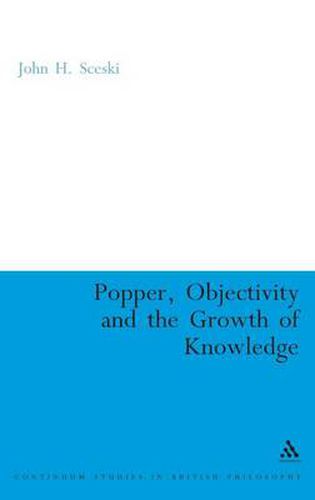Readings Newsletter
Become a Readings Member to make your shopping experience even easier.
Sign in or sign up for free!
You’re not far away from qualifying for FREE standard shipping within Australia
You’ve qualified for FREE standard shipping within Australia
The cart is loading…






John H. Sceski argues that Karl Popper’s philosophy offers a radical treatment of objectivity that can reconcile freedom and progress in a manner that preserves the best elements of the Enlightenment tradition. His book traces the development of Popper’s account of objectivity by examining his original contributions to key issues in the philosophy of science. Popper’s early confrontation with logical positivism, his rarely discussed four-fold treatment of the problem of induction, and his theory of propensities and evolutionary epistemology are linked in a novel way to produce a coherent and philosophically relevant picture of objectivity. Sceski also explores and clarifies many central issues in the philosophy of science such as probabilistic support, verisimilitude, and the relationship between special relativity and indeterminism. He concludes that Popper’s account of objectivity can best bridge the gap between Enlightenment aims for science and freedom and post-modern misgivings about ‘truth’, by developing a philosophy that is non-foundationalist yet able to account for the growth of knowledge.
$9.00 standard shipping within Australia
FREE standard shipping within Australia for orders over $100.00
Express & International shipping calculated at checkout
John H. Sceski argues that Karl Popper’s philosophy offers a radical treatment of objectivity that can reconcile freedom and progress in a manner that preserves the best elements of the Enlightenment tradition. His book traces the development of Popper’s account of objectivity by examining his original contributions to key issues in the philosophy of science. Popper’s early confrontation with logical positivism, his rarely discussed four-fold treatment of the problem of induction, and his theory of propensities and evolutionary epistemology are linked in a novel way to produce a coherent and philosophically relevant picture of objectivity. Sceski also explores and clarifies many central issues in the philosophy of science such as probabilistic support, verisimilitude, and the relationship between special relativity and indeterminism. He concludes that Popper’s account of objectivity can best bridge the gap between Enlightenment aims for science and freedom and post-modern misgivings about ‘truth’, by developing a philosophy that is non-foundationalist yet able to account for the growth of knowledge.